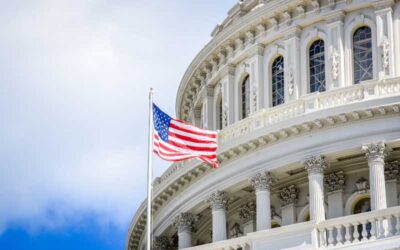Here is what you should know about the new Covid-19 Stimulus package
Late in the day on Monday, December 21, Congress passed a comprehensive stimulus package. There are several key tax-related provisions in the bill. Most notably, clarifying that the PPP will be tax-free. Below is an overview of the key provisions; a more comprehensive summary will follow.
Recovery Rebates for Individuals
A $600 per person direct payment to individuals is included in the bill. The $600 amount is per individual and includes minor dependents. The qualifications mirror the CARES Act qualifications for the earlier $1,200 stimulus, including a phase-out beginning at the income of $75,000 (or $150,000 on a joint return). Individuals who received the earlier $1,200 stimulus payment will be eligible for the additional $600 payment.
Extension of Supplemental Unemployment Benefits
Federal unemployment benefits provided by the CARES Act have been renewed at $300 per week. The additional $300 per week applies to all workers receiving unemployment benefits through March 14, 2021. Self-employed individuals are eligible for an additional $100 per week.
Paycheck Protection Loans
Many of our clients took advantage of the first and second round of the Paycheck Protection Program (PPP) Loans. The bill clarifies the tax treatment of those loans and adds a “second-draw” loan for certain businesses. The bill also increases the amount available to farmers who file Schedule F.
- PPP Taxability
- The bill clarifies that PPP forgiveness is tax-free, and the expenses paid with the loan proceeds are deductible. It also explains that taxpayers will receive an increase to the basis for the amount of the loan, effectively treating the PPP forgiveness exactly as any other tax-exempt income is treated for tax purposes. This provision overrides the IRS’s position that the PPP loans’ expenses were to be non-deductible.
- Additional Qualified Expenses
- In addition to the change in taxability, the bill also allows additional expenses to qualify for forgiveness. These expenses include certain operations expenditures, property damage costs, supplier costs, and worker protection expenditures.
- Simplified Forgiveness Application
- A simplified PPP forgiveness application will be made available for original PPP loans of $150,000 or less. The form is less than one page long, and minimal additional documentation will be required for forgiveness.
- PPP Second-Draw Loans
- A second PPP loan will be allowed for businesses and self-employed individuals who sustained significant hardships in 2020. The loans are available to entities that employ 300 employees or less and had gross receipts in any calendar quarter of 2020 that were at least 25% less than gross receipts in the same calendar quarter of 2019.
- Additional entities are also eligible for the second-draw loans, including 501(c)(6) organizations, provided they meet the other qualifications and the expenses are not used for lobbying activities.
- The second-draw loan amount uses the same calculation as the amount for the first PPP loan and is an amount equal to 2.5 times the monthly payroll. A new 24-week covered period applies beginning on the date of the grant of the second draw loan.
- Simplified procedures are to be made for entities eligible for loans that are less than $150,000.
- Calculation of Loan Amount for Farmers
- The amount of loan available for eligible farmers who file Schedule F is based on the gross income reported on Schedule F, rather than the net income reported on Schedule F. Consequently, farmers are eligible for a larger PPP loan than provided under the CARES Act.
Loan Payment Forgiveness for Other SBA Loans
- Taxability
- Businesses with existing SBA loans received principal and interest payment forgiveness for six months of 2020. The bill clarifies that the forgiveness is tax-free, and the related interest expense is deductible. The bill further clarifies that the $10,000 EIDL Grant that many taxpayers received is not taxable.
- Extension of Program
- In addition to the original six-month forgiveness of payments, most entities are also eligible for another three months of payments beginning on February 1, 2021. Certain entities are eligible for another eight months beginning on February 1, 2021. Entities eligible for the additional eight-month period include most retail establishments, hotels, restaurants, personal care service providers, transportation, and news organizations.
- Additional SBA Loan Provisions
- The bill also provides an expansion of the 7(a) loan program, low-interest loan refinancing provisions, an expansion of the EIDL grant provisions, and other SBA loan expansion.
Extension of Deferred Payroll Tax
The bill provides an extension of the payroll tax deferral included in Notice 2020-65. The extension gives taxpayers from January 1, 2021 through December 31, 2021, for the payment of the deferred payroll taxes, paid ratably. This provision is a deferral of the tax (not a forgiveness of the tax).
FFCRA Sick Pay & Emergency FMLA
The Families First Coronavirus Relief Act (FFCRA) passed earlier in the year allowed for the reimbursement of sick pay (up to 10 days and up to $511 per day) and for the reimbursement of Emergency Family and Medical Leave pay (up to 10 weeks at 2/3 pay up to $200 per day). See our summary here. The bill extends those credits to March 31, 2021, and allow self-employed individuals to take advantage of the Sick Pay and Emergency FMLA provided in the FFCRA.
Grants for Shuttered Venue Operators
Grants are available for live venue operators, performing arts organizations, museum operators, motion picture theatre operators, and talent representatives that have seen more than a 25% reduction in receipts as compared to 2019.
Certain Tax Provisions Made Permanent
- Reduction in medical expense deduction floor.
- Energy-efficient commercial buildings deduction.
- Transition from deduction for qualified tuition and related expenses to increased income limitation on lifetime learning credit.
- Modification of single taxpayer rules.
Certain Tax Provisions Extended Through 2025
- New markets tax credit.
- Work opportunity credit.
- Exclusion from gross income of discharge of qualified principal residence indebtedness.
- Empowerment zone tax incentives.
- Employer credit for paid family and medical leave.
- Exclusion for certain employer payments of student loans.
Extension of Certain Other Tax Provisions
- Credit for electricity produced from specific renewable resources.
- Extension and phaseout of energy credit.
- Treatment of mortgage insurance premiums as qualified residence interest.
- Credit for health insurance costs of eligible individuals.
- Energy-efficient homes credit.
Clarifications & Technical Improvements to CARES Act Employee Retention Credit
The Employee Retention credit provided in the CARES Act was limited to 50% of wages up to $10,000. This has been expanded to allow for 70% of wages up to $10,000. Employers who received the PPP may now qualify for this credit if the wages were not paid with PPP loan proceeds.
Temporary Allowance of Full Deduction for Business Meals
Expenses for business meals after December 31, 2020 and before January 1, 2023 will be fully deductible (rather than limited to 50%) if the expense is paid to a restaurant.
Charitable Contributions
- Specific charitable contributions deductible by non-itemizers.
- In 2021, individuals who take the standard deduction will be allowed a charitable contribution deduction of up to $300 ($600 for married filing joint) for qualified charitable contributions. (Tax year 2020 allows a $300 deduction for all filers).
- Modification of limitations on charitable contributions.
- Cash contributions to qualified charities are allowed up to 100% of AGI for tax years 2020 and 2021.
Temporary Special Rules for Health & Dependent Care Flexible Spending Arrangements
Heath and dependent care flexible spending arrangements are allowed to include a carryover from tax year 2020 to tax year 2021. These arrangements are also allowed to include a carryover from tax year 2021 to tax year 2022.
QUESTIONS?
As with most topics related to COVID-19, changes are being made rapidly. To learn more, visit the COVID-19 Resource section of our website, contact your Smith Schafer professional, or email us at [email protected].



